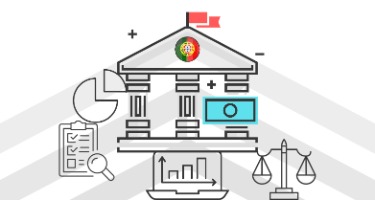When JPMorgan Chase announced its new slogan, “So You Can,” the bank’s chief marketing officer, Claire Huang, explained that the tagline was meant to convey Chase’s strong commitment to its customers. “A couple of years ago,” Huang said, “the business went on this transformation from being just a product-centered business to being a customer-centered business.”
That might come as a surprise to some Chase credit card customers. This month, the bank announced that it was changing the terms of service for most of its cardholders in order to prevent them from ever taking the company to court. Bucking a growing trend of shying away from using mandatory arbitration clauses to force customers out of court, Chase instead announced it would embrace the tactic, essentially barring the courthouse doors for cardholders who want to try and hold the company accountable for any wrongdoing. The result is likely to be a boon to Chase’s bottom line and a bust for customers who are cheated or swindled down the road.
The timing of Chase’s announcement is no accident. In October 2017, Vice President Mike Pence joined 50 senators to cast a tie-breaking vote that killed a proposed rule from the Consumer Financial Protection Bureau (CFPB) that would have guaranteed consumers the right to band together and sue financial institutions and credit card companies, like Chase, in court. At the time, Public Justice deemed the Senate vote the “Wells Fargo Immunity Act,” because it came on the heels of discoveries that Wells Fargo had cheated countless customers by opening unauthorized accounts in their name and charging them fees that amassed a small fortune for the bank. Consumer advocates warned lawmakers and the public that the razor-thin vote in the Senate would likely open the floodgates for other banks to aggressively roll back the rights of consumers to have their day in court.
We take no glee in pointing out that Chase has now proven us right. A quick look at Chase’s track record also underscores why this policy is in the sole interest of the company.
Between 2011 and 2016, Chase paid more than $36 billion in fines and settlements to customers, leading one economic professor from Boston University to ask in Forbes if it was “America’s most corrupt bank.” Citing a literal book of evidence compiled against the company, Professor Laurence Kotlikoff noted that the authors of that book “. . . compare JPMorgan Chase to the Gambino crime family and point out both the similarities and the differences concluding that both organizations were structured to profit from violations of law.”
Had those misdeeds been forced into arbitration rather than court, however, customers would have undoubtedly collected only a fraction of what they did … if they collected anything at all. In looking at the need for the CFPB rule that Pence and the Senate killed two years ago, the agency reviewed every single arbitration conducted by the American Arbitration Association (by far the largest private arbitration company handling consumer cases) against lenders over the course of three years. Out of the hundreds of millions of arbitration clauses customers were beholden to, only 411 brought cases against lenders during that three year period. Of those, 32 consumers won some recovery through arbitration, but only recovered 12 cents for every dollar of their legal claims. If that same recovery rate held true for the $36 billion in fines levied against Chase over a five-year period, the bank would have paid out just over $4.3 billion, a very significant savings to Chase.
Compare that to consumers’ success in the courts: During the same three-year time span that 32 consumers won some semblance of justice through arbitration, more than 13 million customers who were not locked into arbitration clauses that prohibited class actions received money through the courts.
It’s no accident that, the more consumers learn about forced arbitration, the more public opposition grows. And unlike Chase, other companies are beginning to see the public relations consequences of forcing customers into an unfair system. When Lyft announced its IPO in March of this year, for example, the company noted in its filing with the Securities and Exchange Commission that “The use of arbitration provisions may subject us to certain risks to our reputation and brand.”
It’s also likely no accident that, among the many branded credit cards Chase issues, one in particular will be exempt from the arbitration proposal: The Chase AARP credit card. For years, AARP has noted the danger mandatory arbitration poses to older Americans in a number of ways. In fact, the AARP Foundation cites the issue as one of its legal advocacy priorities, noting that “AARP Foundation Litigation fights to protect American's access to courts by fighting unfair arbitration clauses and advocating for the availability of class actions. Americans have a fundamental constitutional right to have a jury resolve their claims of injury from illegal, intentional, negligent, or discriminatory practices. Most people never get their day in court, however, because forced arbitration clauses hidden deep in the small print of most standard contracts force all disputes into arbitration.”
But there is a way out of this unconscionable proposal for other Chase cardholders. We’ve joined together to make sure consumers who want to opt out of Chase’s forced arbitration clause know there is a process, in the words of Chase, “so you can.” Those customers have until August 7 to notify the bank, in writing via snail mail, of their desire to opt out. In order to do so, the bank says, “You must do so in writing by stating that you reject this agreement to arbitrate and include your name, account number, address, and personal signature. Your notice must be mailed to us at P.O. Box 15298, Wilmington, DE 19850-5298. Rejection notices sent to any other address, or sent by electronic mail or communicated orally, will not be accepted or effective.”
Chase is counting on customers to find the opt-out process too burdensome to bother. We implore cardholders to prove them wrong. As we’ve noted above, Chase’s past history makes it likely that, someday, some cardholders will likely need to hold the bank accountable in a court of law. So the time is now to put pen to paper, and get out stamp, “so you can” when that time comes.
----------
Leonard Bennett’s practice is focused on the representation of consumers. He has litigated individual and class cases throughout the country, trying as many credit reporting cases to a jury as nearly anyone in the nation and has been approved as Class Counsel in numerous class action cases.
Paul Bland, executive director, has been a senior attorney at Public Justice since 1997. As executive director, Paul manages and leads Public Justice’s legal and foundation staff, guiding the organization’s litigation docket and other advocacy.

































